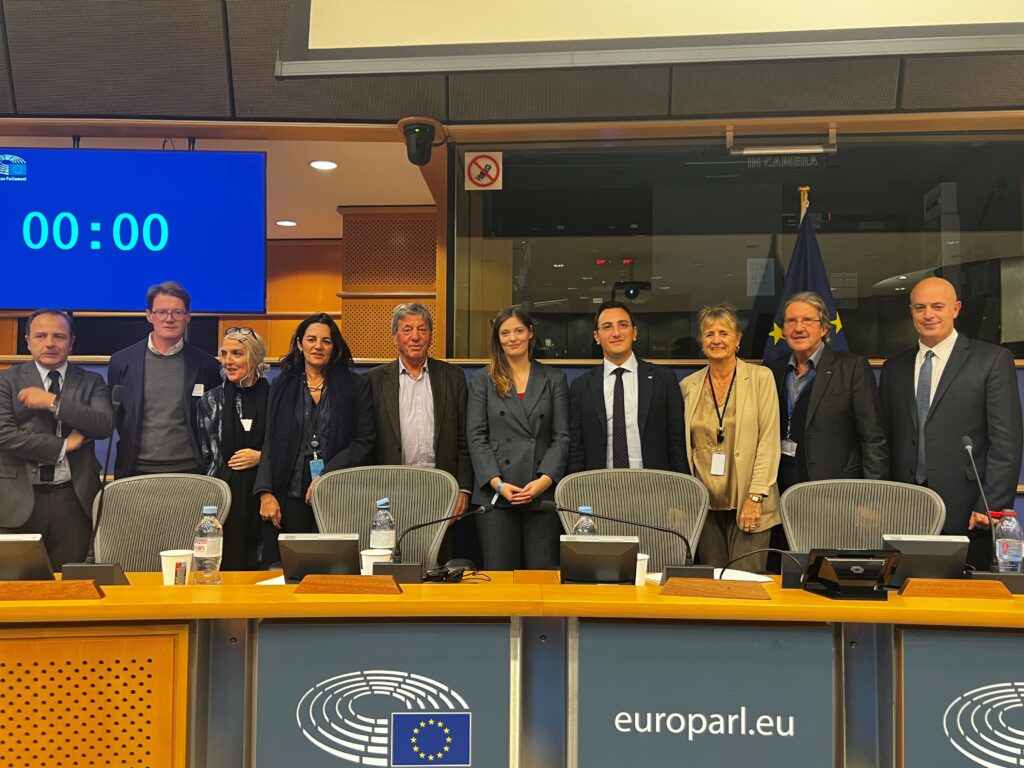At the conclusion of the debate organised by the European Coalitions for Cultural Diversity (ECCD) at the European Parliament on 19 November, held to mark the 20th anniversary of UNESCO’s Convention on the Protection and Promotion of the Diversity of Cultural Expressions, co-organised by MEP Emma Rafowicz, representatives from all cultural and creative sectors adopted a strong declaration calling for urgent action to:
- Regulate digital platforms to ensure a fair, supportive environment for European creation
- Guarantee a fair share of value between creators, rightsholders, digital platforms and AI actors
- Strengthen the contribution of platforms and AI services to cultural funding and respect for intellectual property
- Support an ambitious approach to creation and artificial intelligence so that innovation serves, rather than threatens, cultural diversity and keeps human creation at the centre
Twenty years after its adoption, the UNESCO Convention remains a cornerstone for ensuring that cultural works are not treated as mere commodities but as expressions of identity, imagination and humanity. While the European Union has translated these principles into key legislation—on copyright, audiovisual services, digital markets and, most recently, AI—new threats are emerging: generative AI, opaque platforms, data concentration, and international pressure challenging European cultural regulation.
The event opened with a keynote by Commissioner Glenn Micallef, who announced the launch of the Culture Compass for Europe, designed to embed cultural priorities across all EU policies. Recalling that Europe counts 24 official languages, 8 million cultural jobs and €800 billion generated each year by cultural actions, he underlined that cultural diversity is one of Europe’s greatest strategic assets and must remain a central political priority.
The first panel, dedicated to the impact of platforms on cultural diversity, highlighted increasing concerns. MEP Emma Rafowicz stressed that the notion of “platform” is often misused, covering very different realities, none of which operate neutrally. She warned that growing data concentration and algorithmic dominance could lead to the standardisation of content and to a situation where only a handful of companies control entire cultural value chains. EFAD President Chris Marcich echoed these concerns, noting that global streaming giants increasingly undermine cultural diversity in Europe, especially in smaller markets, and that existing regulation is no longer sufficient. Representing the Federation of European Publishers (FEP), Phaedon Kidoniatis pointed to major challenges, including limited discoverability, the dominance of English-language content and the rise of unreliable AI-generated sources. For independent music companies, IMPALA’s Helen Smith emphasised that rising concentration, illustrated by recent acquisitions, must be closely scrutinised to ensure that cultural diversity is not further eroded.
The second panel focused on AI and its rapidly growing impact on the cultural and creative ecosystem. MEP Hannes Heide reminded that culture is fundamentally human-made and warned that AI systems trained on creators’ work without proper remuneration threaten artistic integrity and creators’ rights. GEMA CEO Tobias Holzmüller welcomed the recent Munich ruling against OpenAI and called for a fair and enforceable European licensing framework. While nearly half of GEMA’s younger members already use AI in their creative process, he warned that these tools cannot be deployed in Europe without accountability or fair remuneration for the works on which they rely. UNESCO expert Professor Alexandra Bensamoun reinforced this message, stressing that high-quality cultural content is essential to AI performance and must be fairly remunerated. She underlined that regulation is not an option but a democratic necessity, ensuring that technology develops in line with societal values.
In closing, UNESCO’s Representative to the EU, Lodovico Folin Calabi, reminded that the Convention must be as relevant today as it was twenty years ago. Protecting the diversity of cultural expressions, he said, is both a cultural and democratic imperative and must be supported by sustained multilateral action, fair remuneration for creators and strong collaboration between governments and civil society.
Twenty years after the adoption of the UNESCO Convention, the ECCD calls on the European Union to reaffirm culture as a strategic priority. In a context marked by the dominance of global platforms and the rise of AI, cultural diversity cannot be taken for granted. The Coalitions urge the EU to ensure that technological innovation strengthens rather than weakens Europe’s creative ecosystem, and that human creation remains at the heart of Europe’s democratic and cultural future.

